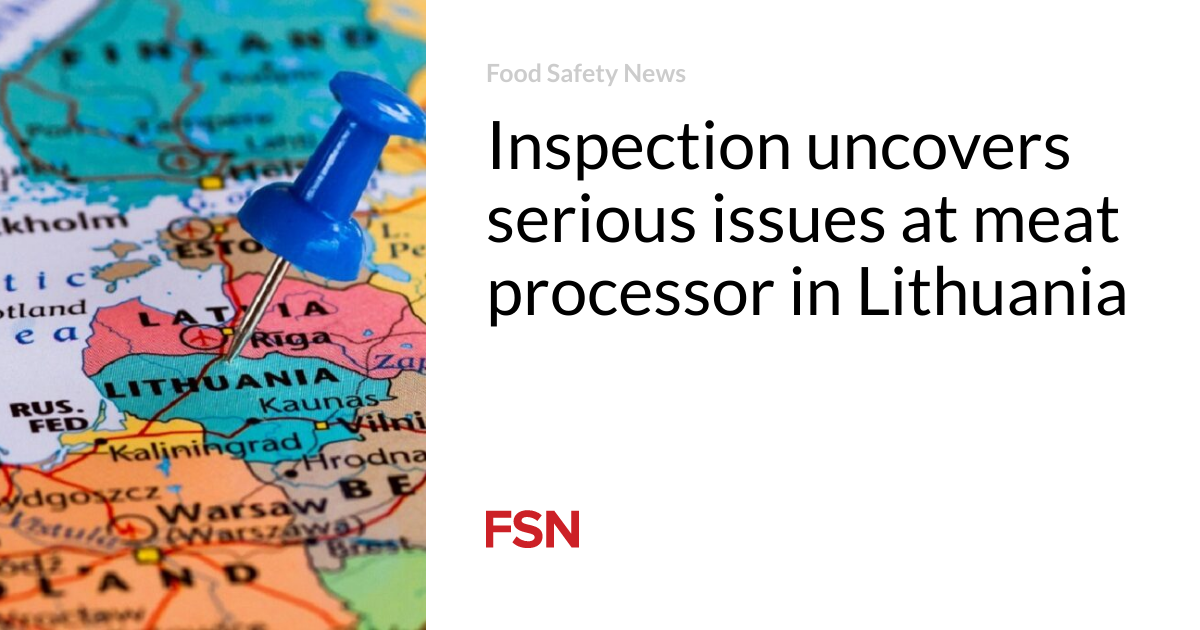Food
Inspection reveals serious problems at meat processor in Lithuania

Major problems were discovered after a planned inspection at a meat company that supplies schools and care homes in Lithuania.
In May, a planned inspection was carried out at the Riamona UAB meat processing plant, in Alytus district, by the local Food and Veterinary Service Department (VMVT). The company supplies products to children’s educational institutions and social care institutions.
Testing of fresh poultry meat revealed that Salmonella and Listeria monocytogenes were found in environmental samples.
The company’s operations were suspended and more than 4 tons of products were destroyed. VMVT says administrative actions will be taken after the ongoing investigation is completed.
Inspectors also found sausages from another manufacturer, which had been relabeled and sold as products made by Riamona UAB, giving consumers false information. Sausages were made from chicken, but the label said they were made from pork.
Officials said some other meats produced by the company do not meet quality standards. They are sold as meat products of the highest quality, but mechanically separated meat was used.
In addition to product labeling and production violations, inspectors found dirty conditions in food preparation areas, only cold water was available and some sinks were not working, employees’ personal hygiene was not ensured, and traces of vermin were observed. Officials also raised the possibility of cross-contamination.
According to authorities, expired food products were used, and raw materials and products of unclear origin were found, which were unmarked and untraceable.
Other cases
In another case, VMVT officers inspected a kebab shop in Kaunas after reports of illness.
The reason for the visit was a report from the National Public Health Center (NVSC) about two cases of food poisoning.
An unscheduled inspection of the kebab shop revealed food safety and hygiene violations. These include a lack of traceability, a poor state of hygiene and concerns about not following self-monitoring procedures.
Samples taken during the inspection are analyzed at the National Food and Veterinary Risk Assessment Institute. Drinking water samples complied with legislation. Operations at the site have been temporarily halted while the investigation continues.
According to NVSC, approximately 350 people in Lithuania become ill with salmonellosis every year. In 2023, 14 outbreaks were confirmed. In April this year, twelve people became ill during an outbreak of Salmonella infantis linked to chicken from Poland.
Also in May, a planned inspection at a bakery in Šiauliai province revealed problems related to hygiene, food storage conditions, raw materials used and cross-contamination.
Inspectors noticed that the food preparation areas were dirty. There were flies in the production area because there was no insect net and the outside door was open. Waste was stored in an open bin and there was not enough space for washing, disinfecting and drying production equipment.
In a freezer, officers found 30 pounds of unmarked raw materials and unwashed eggs covered in chicken feces. Other deficiencies included the cooling process for manufactured items and the storage of raw materials. The company was subject to enforcement action, including a fine.
(To sign up for a free subscription to Food Safety News, Click here.)













